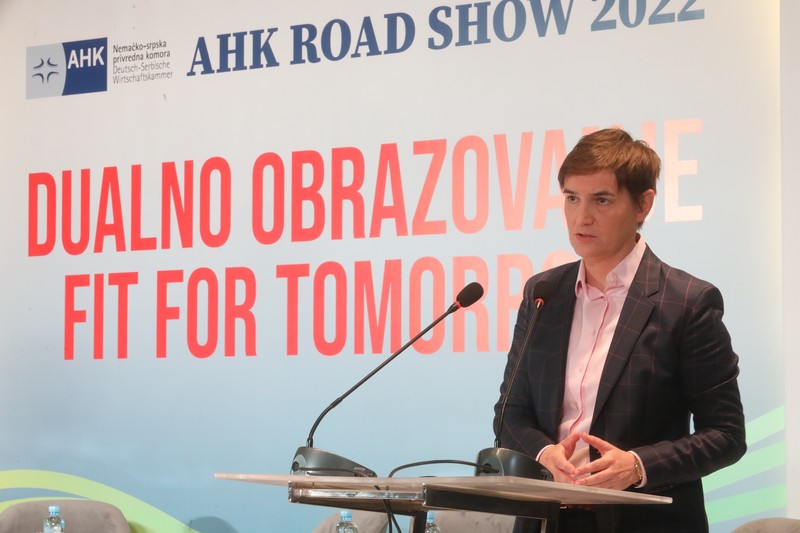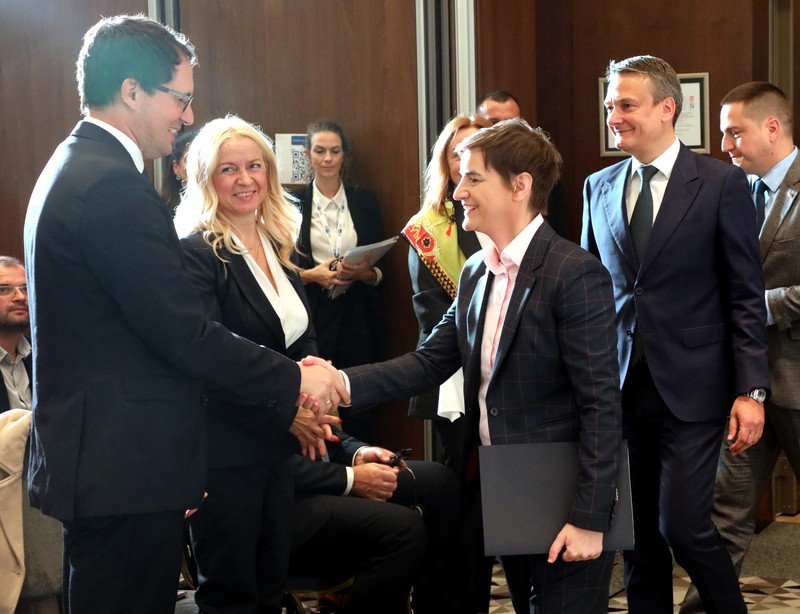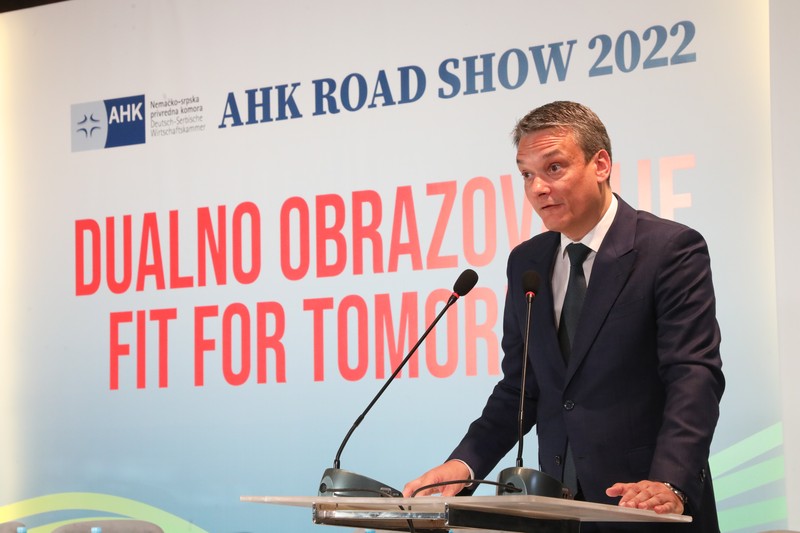Prime Minister Ana Brnabic said today that as many as 69 percent of students in Serbia who studied according to the dual education model are employed, while 42 percent of employees are those who studied according to the classical model.
- Serbia
Get to know Serbia
- Citizens
Culture and science
Health services
Pension and disability insurance
- Business
Employment
Economy
- Media
- Government
- Contact
Keep in touch
Keepin touch
Whether you have a question, comment, suggestion or any problem in the purview of the government, send us your message and we will try to respond as soon as possible. If your problem is not in our purview, we will forward your message to the relevant institution.
Multiple advantages of dual model of education
At a conference on dual education organised by the German-Serbian Chamber of Commerce, she pointed out that the average salary of a secondary school student who was not educated according to the dual model is RSD 65,361, while the salary of one who was educated according to the dual model is RSD 80,441.
Today, German companies employ around 78,000 people in Serbia, investors from that country are the most important partners of the government and the state, and German investments are among the most significant ones for us. They are especially important because with them comes the transfer of technology that enriches the country and changes it. That helped us change and raise competitiveness and innovation to a higher level, she said.
Brnabic recalled the results of a survey presented by the German-Serbian Chamber of Commerce this year, which show that 95 percent of German companies would invest in Serbia again.
There are other things that we had to change in order to ensure the flow of German investment in this way. One of them is the Law on Dual Education, which was adopted in 2017, and which began to be implemented in the 2019/20 school year, the Prime Minister pointed out.
Brnabic mentioned that there are more and more domestic companies that are involved in the dual education model, and that one of the tasks of the new government is to have more children opting for that model of education and for the faculties where it is implemented.
First Deputy Prime Minister and Minister of Education, Science and Technological Development Branko Ruzic reminded that there are currently 150 secondary vocational schools with 65 professional profiles in which dual education is implemented, as well as that there are 75 companies in the country in which about 150 students perform professional practice.
The working group is working on amendments to the law related to dual education, and after the formation of the government, we will put those amendments up for a public debate, he said.
President of the German-Serbian Chamber of Commerce Milan Grujic assessed that dual education is one of the key factors towards a stable economy and emphasised that the interest of foreign investors in Serbia is not decreasing, that new jobs are being created and that there is an increasing need for professional workforce.
Head of the Economic Department of the German Embassy to Serbia Denis Kaiser said that the goal must be for dual education to become popular in small Serbian businesses.
This should happen in the whole country and the adoption of the law is an opportunity to popularise dual education, he said.
-
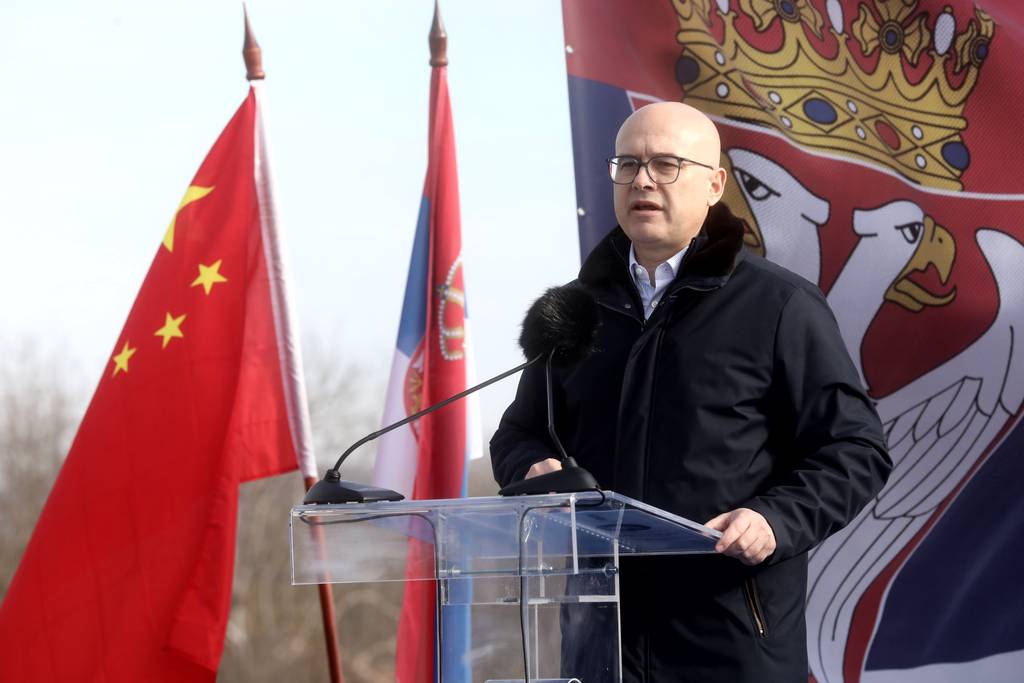 Valjevo, 1 February 2025
Valjevo, 1 February 2025Last section of Lajkovac-Valjevo high-speed road opened
-
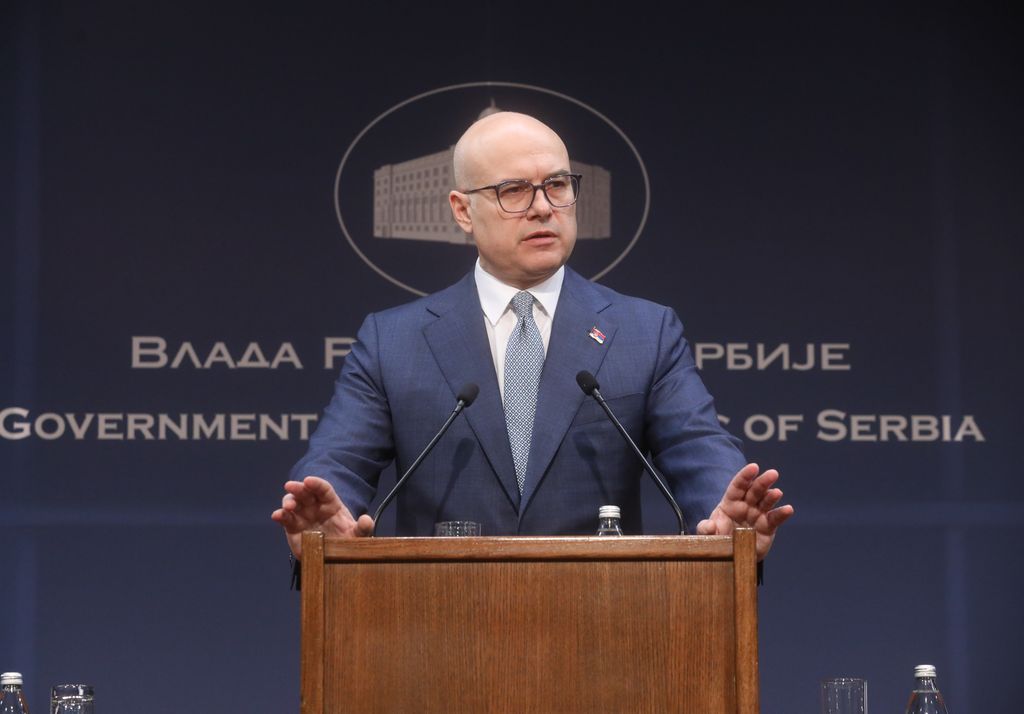 Belgrade, 28 January 2025
Belgrade, 28 January 2025Vučević resigns as Prime Minister
-
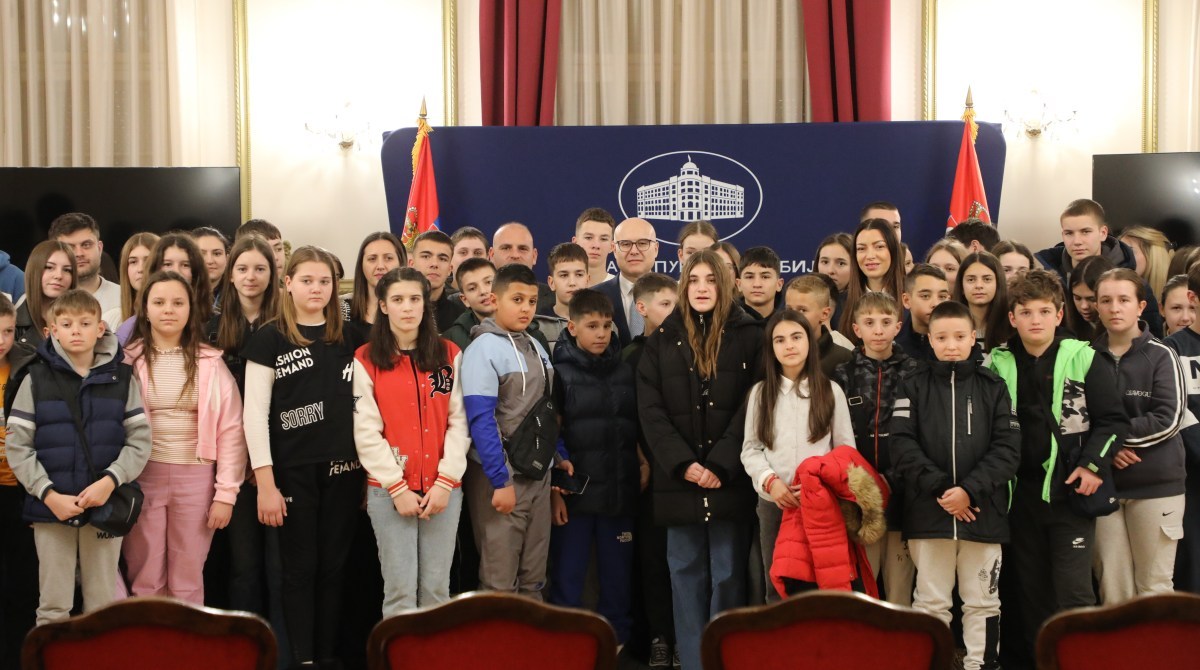 Belgrade, 28 January 2025
Belgrade, 28 January 2025Prime Minister hosts Serb children from Kosovo and Metohija
-
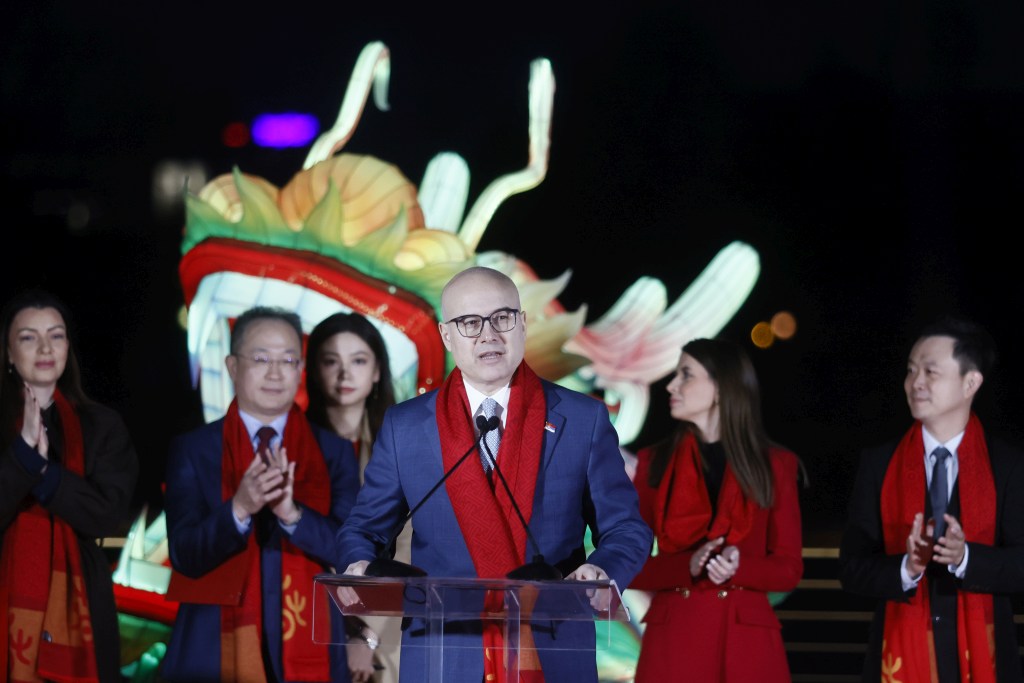 Belgrade, 28 January 2025
Belgrade, 28 January 2025Chinese New Year celebrated for seventh time in Belgrade
-
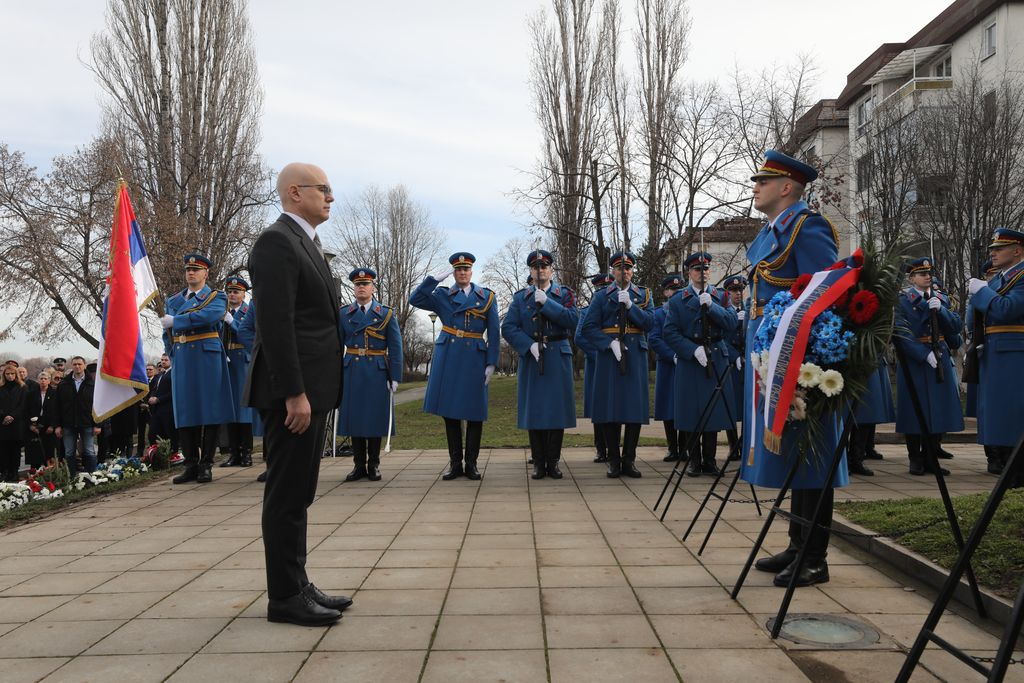 Belgrade, 27 January 2025
Belgrade, 27 January 2025Building lasting culture of remembrance for victims of Holocaust
-
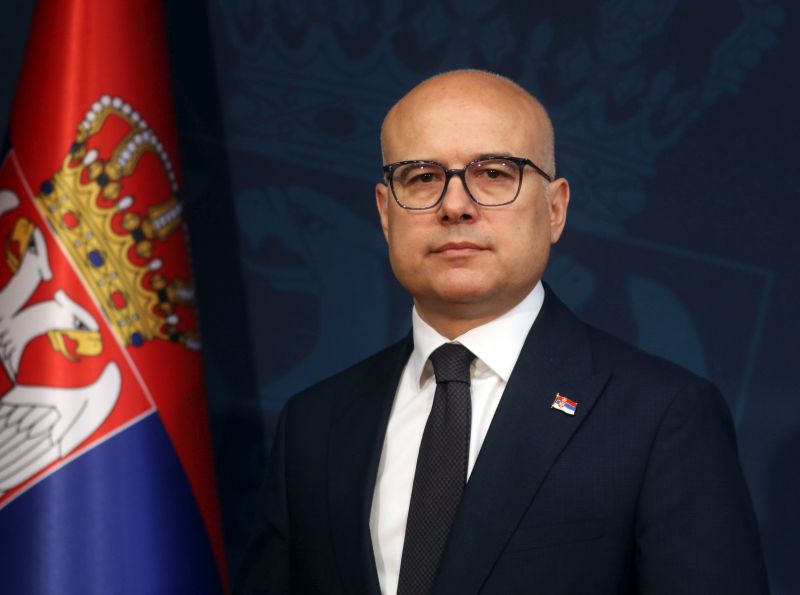 Belgrade, 26 January 2025
Belgrade, 26 January 2025Additional documentation on Novi Sad canopy collapse to be published promptly
-
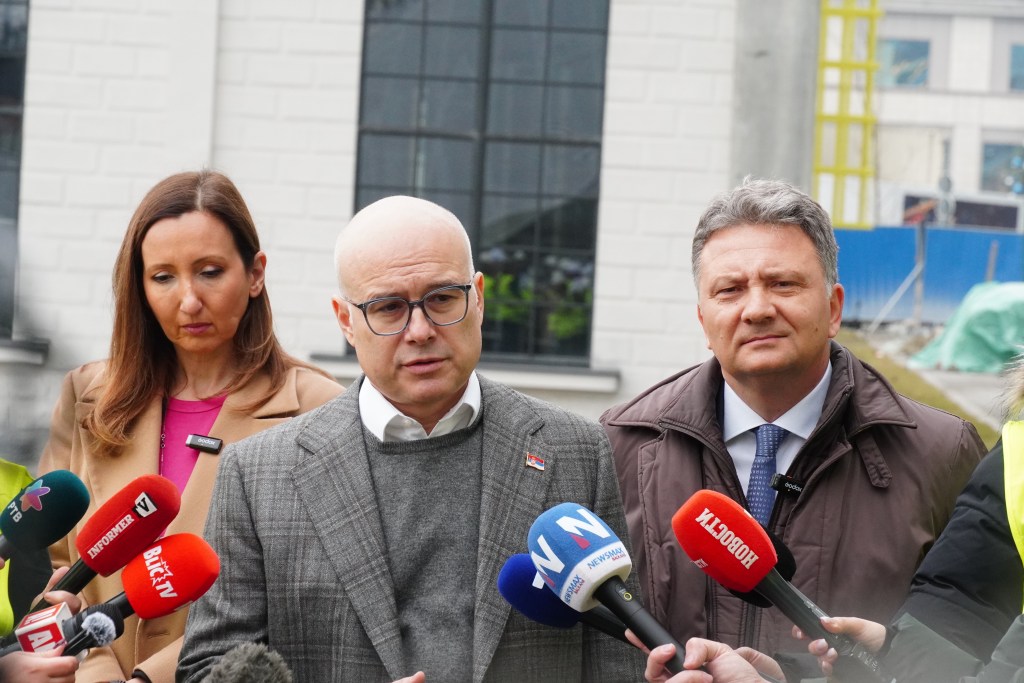 Belgrade, 23 January 2025
Belgrade, 23 January 2025Ložionica reconstruction project of great social importance
-
 Belgrade, 22 January 2025
Belgrade, 22 January 2025Egyptian companies invited to invest in Serbia
-
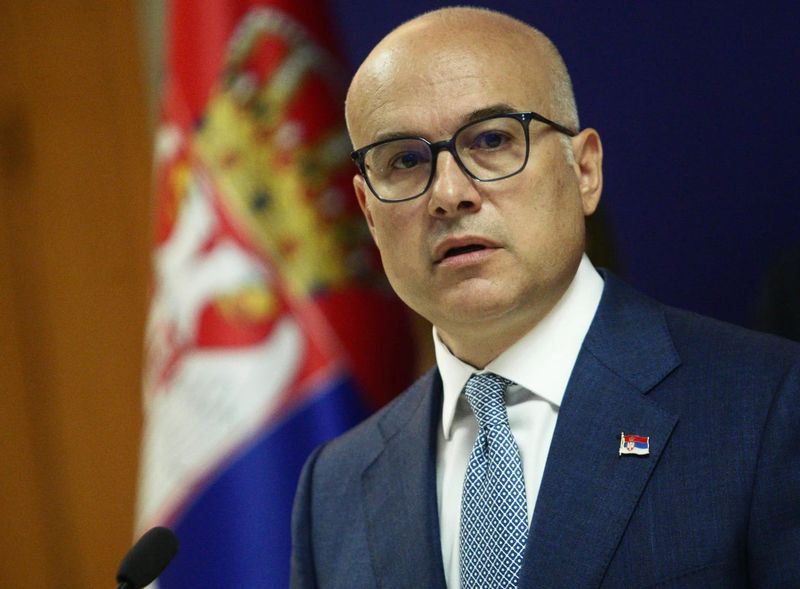 Belgrade, 21 January 2025
Belgrade, 21 January 2025Vučević sends condolences to Government of Türkiye for tragic loss of lives in fire
-
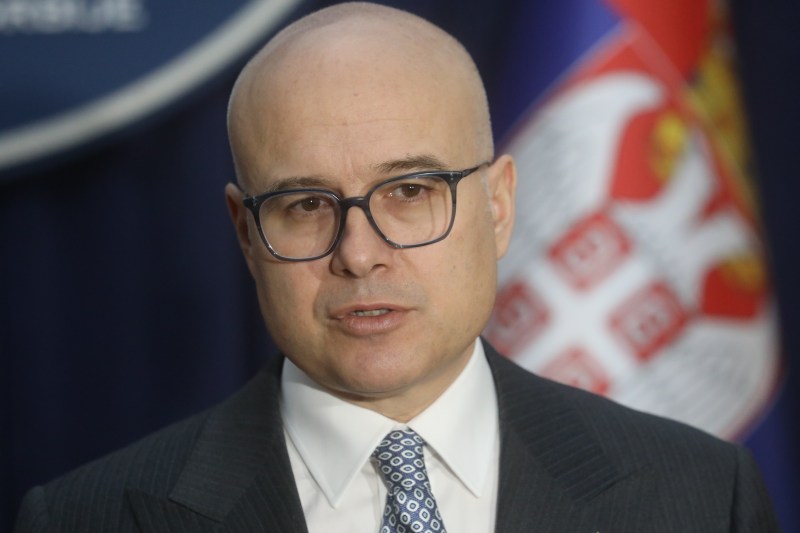 Belgrade, 20 January 2025
Belgrade, 20 January 2025Classes held in more than 80% of schools in Serbia







